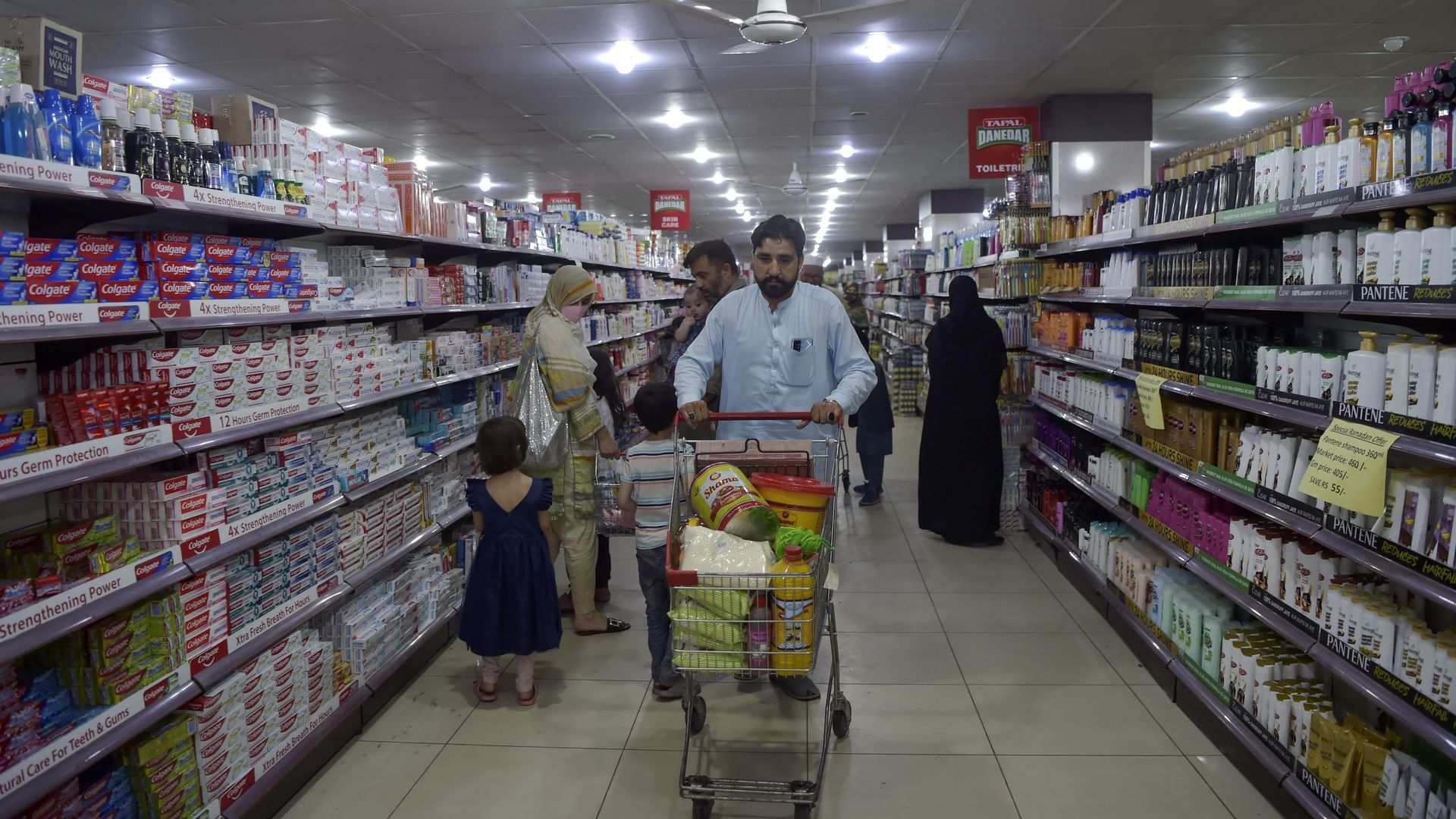Apr 2, 2022 - World
Ramadan begins in much of Middle East amid rising food prices
Add Axios as your preferred source to
see more of our stories on Google.

People shop at a supermarket at the start of Islam's holy month of Ramadan, in Peshawar, Pakistan, on April 2. Photo: Abdul Majeed/AFP via Getty Images
